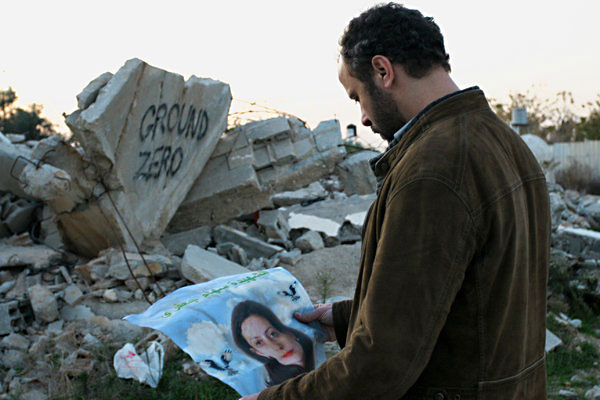
The Attack
2013, R, 102 min. Directed by Ziad Doueiri. Starring Ali Suliman, Reymond Amsalem, Evgenia Dodena, Uri Gavriel, Karim Saleh, Dvir Benedek.
REVIEWED By Marjorie Baumgarten, Fri., Aug. 2, 2013
A woman weeps as she says goodbye to her husband at the beginning of The Attack, the latest film from Lebanese filmmaker Ziad Doueiri (West Beirut). Her spouse is moved by her feelings for him as she departs Tel Aviv for a trip to visit her family in Palestine. Still, she will not be at his side when he receives a prestigious medical award in Tel Aviv – the first this Israeli organization has given to an Arab in 41 years, he notes in his address to the gathering. Shortly after the ceremony, a terrorist bomb goes off in in the city, killing 17 people, and the doctor is called back on duty at the hospital. After tending to the surviving victims, the surgeon, Amin (Suliman) is told that all evidence points to the fact that his wife Siham (Amsalem), was the bomber. Identifying her corpse in the morgue, Amin strongly insists that she must have been a victim, not the perpetrator. Amin’s known universe no longer makes sense and, after mourning, he begins to investigate.
The first half of this film is a thoughtful and provocative mystery – not so much into the identity of the bomber, but into Palestinian identity as a whole, not to mention a husband’s inquiry into the extent to which he really knew his wife. At first, Amin is tortured as a co-conspirator, Guantanamo-style. Yet it’s clear he knows nothing of Siham’s intentions and beliefs. He is proud of his assimilation into Israeli society, and has no idea that she was not of a like mind. We watch as Amin goes from outrage and denial to acceptance and puzzlement, and Suliman deftly pulls the audience along in his emotions while appearing in almost every scene.
Around the midway point, however, Amin travels to Palestinian territory to seek answers from Siham’s family and various religious leaders. Here, the film turns into a more traditional litany of the well-known problems that have plagued this region of the world for generations. At its best when making the political personal, the film’s exposure of a husband’s enduring mystery about his wife’s motivations has a universal appeal. Answers prove more elusive than the questions. Formerly a cameraman on several of Quentin Tarantino’s films, Doueiri knows how to create images that linger. Maybe that’s what has caused The Attack to be banned in his home country of Lebanon and elsewhere.
A note to readers: Bold and uncensored, The Austin Chronicle has been Austin’s independent news source for over 40 years, expressing the community’s political and environmental concerns and supporting its active cultural scene. Now more than ever, we need your support to continue supplying Austin with independent, free press. If real news is important to you, please consider making a donation of $5, $10 or whatever you can afford, to help keep our journalism on stands.
Marjorie Baumgarten, Sept. 9, 2005
The Attack, Ziad Doueiri, Ali Suliman, Reymond Amsalem, Evgenia Dodena, Uri Gavriel, Karim Saleh, Dvir Benedek









